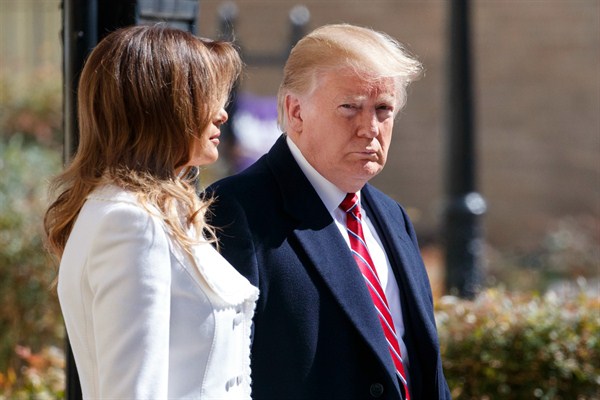Tuesday marks the centenary of one of the most extraordinary foreign policy debates in American history, which has renewed resonance today. On March 19, 1919, 3,000 lucky spectators crammed into Boston Symphony Hall to hear Sen. Henry Cabot Lodge, the chair of the Senate Foreign Relations Committee, square off against A. Lawrence Lowell, the president of Harvard University. Both men were Republicans and Boston Brahmins. But they disagreed on a big political question. Should the United States, having helped win the Great War, join a League of Nations to defend the peace? The Lodge-Lowell debate was the opening salvo in a titanic, yearlong battle over President Woodrow Wilson’s internationalist vision.
It is remarkable how current the transcript reads. In the age of Donald Trump, Americans are again divided over whether multilateral cooperation is consistent with national sovereignty. Until recently, this question seemed resolved. From Franklin D. Roosevelt through Barack Obama, 13 successive U.S. presidents embraced global leadership, upheld international institutions and managed an open, liberal world order.
President Trump has repudiated this legacy. His “America First” agenda resurrects the slogan of interwar isolationists who believed that the nation could and should insulate itself from global troubles. To understand this attitude, look to the past.

